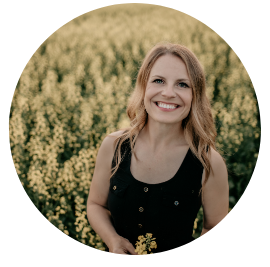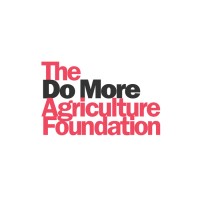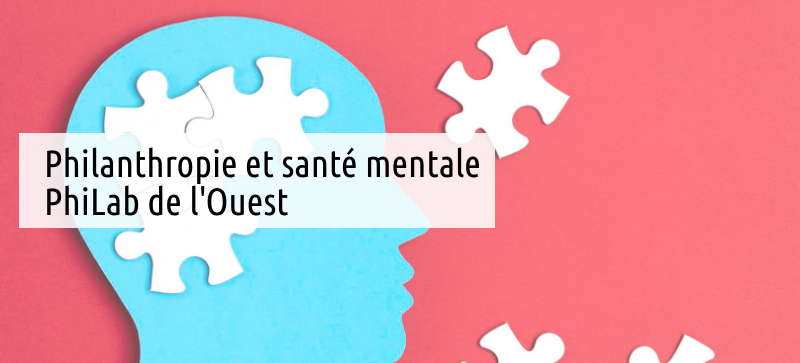
Lesley Kelly is one of the four co-founders of the Do More Agriculture Foundation; she and her family are active members of the agricultural community, running their own farm. She is very passionate about her work at the foundation and owns her own brand, High Heels and Canola Fields, where she provides important resources to farmers through keynote speaking, blogging, and the What the Farm podcast. She and her family also have their own snack food line that uses the barley grown on their farm. Lesley was kind enough to participate in a brief interview with me to talk about the Do More Agriculture Foundation and its contributions to mental health.
Interview by Adriana Davis
The Do More Ag Foundation provides critical resources to producers, a sub-population of people that are often overlooked when discussing mental health. There really is something unique about this community of people and the work that they do in today’s fast-paced, instantaneous world. Could you provide me with a brief overview of the Do More Ag Foundation?
 The Do More Ag Foundation (DMAF) is coming up on their fourth-year anniversary since being founded in January of 2018. The goal of the foundation is to champion the mental health of Canadian producers. They have immense support through farmers, farmer-led organizations, and are the national leader in Canadian agriculture mental health. Their board is primarily farmers working in agriculture from coast-to-coast alongside mental health professionals. Lesley describes it as “Half farmers, half industry”. The DMAF runs on three pillars: awareness, community, and resources.
The Do More Ag Foundation (DMAF) is coming up on their fourth-year anniversary since being founded in January of 2018. The goal of the foundation is to champion the mental health of Canadian producers. They have immense support through farmers, farmer-led organizations, and are the national leader in Canadian agriculture mental health. Their board is primarily farmers working in agriculture from coast-to-coast alongside mental health professionals. Lesley describes it as “Half farmers, half industry”. The DMAF runs on three pillars: awareness, community, and resources.
Awareness. The foundation provides awareness of mental health and mental illness by breaking down what it means for those in the farming community, and by reducing the stigma and barriers for access to mental health support.
Community. The foundation builds a community that provides a safe environment for farmers and ‘farm families’ to be able to speak up and share their experiences and struggles. It fosters a healthy, supportive dialogue by enabling communities to have the confidence to speak whether it be at a board room table, kitchen table, or online.
Resources. When DMAF first got together, they realized that there were very few resources that tackled this particular problem. It has since been their mission to be a central hub of resources so that people may access their website and discover local resources in their area. Not only are they bringing in resources for the agricultural community through providing mental health first aid at no cost, but they are building resources as well.
The DMAF has several workshops and programs designed to build mental health resources for those in the agricultural community:
Talk, Ask, Listen, is a 4-hour workshop geared towards farmers and can be provided online or in-person. This workshop educates farmers on mental health awareness, signs and symptoms, providing and receiving support, and prevention strategies.
Ag. Culture is a mental health literacy program for mental health professionals who may not have direct experience on the farm. This program was designed to minimize the barriers that farmers experience when trying to access professional mental health support.
Ag. Talk is an ongoing support crisis line that is currently in the works that will provide immediate services to those in need. This crisis line will be especially helpful for farmers during busy times like calving or harvest where access to mental health support lessens.
There are a lot of extremely passionate folks involved in the Do More Ag Foundation, all with some degree of practical experience in the field of agriculture. You, yourself are farmer and a very active member in the agricultural community. You, for example, run your own brand, High Heels and Canola Fields that exemplifies your passion for building community and creating conversations. When did you notice the need for a service like the Do More Ag?
Kim Keller, a friend of Lesley’s and a fellow farmer, received a message from someone working with a farmer that had died by suicide. This person was looking for resources for the family without much luck. It proved incredibly difficult to find these resources, so Kim ended up writing a tweet asking for agriculture to do more, highlighting that farm stress and suicide are real issues with real implications. This tweet took off; more and more people agreed that more needed to be done in this area and started a conversation. Lesley and her husband felt that the conversation lacked a key piece: personal connection. She and her family struggled with mental health on their farm and wanted to share their personal story to help others. They recorded a live video sharing their struggles. Matt, Lesley’s husband, opened up about his experience with anxiety and panic attacks, while she opened up about her struggles with postpartum depression following the birth of their second child. They shared what it was that got them through and asked the farming community to keep the conversation going. Soon, they received a flood of messages from farmers around the world thanking them for sharing their story, and reflecting on their own experiences with mental health in agriculture.
Kirk Muyres, a now co-founder, saw Lesley’s video and asked her and Kim where he could donate to support the cause. After finding nothing, Kim, Lesley, and Kirk decided to start a foundation that focused on farmer’s mental health. Upon launching, government officials, CEOs of companies, executive directors, and farmers submitted videos about why mental health is so important in the industry. They emphasized that saving farmer’s lives needs to be industry-collaborative. This is why DMAF’s board members are part farmers, and part industry.
What are some ways that you and your family prioritize your mental health amidst all of the work you are doing?
Before, mental health wasn’t a priority despite all of Lesley’s family being touched by mental illness. Now, she and her family have learned that it is okay to put themselves on the priority list and to intentionally practice self-care. Lesley stated that they “[…] make it a priority to give ourselves the time and energy to do the things that make us feel better”. Each family member has their own set of tools or strategies that work for them but, in general, it is all about fostering a kind, gentle, supportive, and patient environment on the farm.
The family sat down and talked about what was going on inside of one another’s worlds to create a compassionate understanding for each person’s struggles. One thing that Lesley noted in particular, was the use of stress numbers. Each person shares their stress number from 1 to 10; based on this, the other family members know how to help that person to feel supported. Lesley describes the mentality as one of “[…] positive intent when it comes to those hard days when work is slower for somebody”.
You mention that stress, anxiety, depression, emotional exhaustion, and burnout are all high among producers. What makes producers among the most vulnerable when it comes to mental health issues and how does Do More Ag address these vulnerabilities?
“With farming, it is unique in the sense that we live where we work, and work where we live” Lesley stated. There is a family dynamic that is unique to farming where a person works with their spouse and relatives that has layers and comes with exclusive difficulties. Lesley spoke about the process of succession planning, whereby family members plan to transfer their wealth to other members, creating uncertainty, fear, and stress. This line of work also includes many factors that are outside of their control (e.g., economic markets or weather). It is very physical and taxing work with long, busy days. Farmers are under extreme pressures to produce despite these uncontrollable factors. Included in these pressures, are the pressures of social media and the opinions of others. Lesley recalled a distressing instance where she had received negative comments online for the use of a certain chemical on her farm. Government often implements certain practices or products that farmers must follow. This creates greater stress and impacts the way everybody works on the farm. There are also many different roles that farmers must take on which come with their own set of stressors. “One minute we are accountants, lawyers, coders, mechanics, HR managers, and in some cases first aid people […]”. In short, farming is not a one-dimensional career.

The Do More Ag Foundation offers several workshops for farmers and agricultural community members. The Community Fund, for example is presented by Farm Credit Canada and supported by all of your partners and local businesses. The Community Fund is available for any person interested in organizing a Community Mental Health Education course in rural communities. Could you tell me more about how this fund was created and the inspiration behind it?
The Community Fund was created to provide agricultural communities across Canada with access to mental health education and literacy at no cost. Farm Credit Canada was one of the first partners of the DAG foundation; they were involved in lots of conversations with the co-founders. From one of these conversations, it was decided that knowledge, confidence, and tools for farmers would be utilized to incite conversations about mental health. The best way to deliver these resources was through the Mental Health First Aid Workshop. Farm Credit Canada was extremely excited to help.
The Community Fund is launched every year where people in their communities can come together and apply to organize this training in their community. Farm Credit Canada is a national organization, therefore all communities across Canada are encouraged to apply. DMAF works with its provincial partners to bring these workshops to their local area. Social media is also used as a recruiting tool to encourage applicants. In those provinces where applications are down, members of DMAF will reach out to those community leaders and encourage them to apply again. Communities are also encouraged to reach out to their network and bring the program to surrounding areas.
Do you know approximately how many communities The Community Fund has reached in the past year?
To date, this program has been running for 3 years, reaching over 60 communities with over 1,000 farmers having gone through the training.
What are some of the changes that you are able to observe in those communities that have received the education courses?
Through survey feedback following the completion of these courses, DMAF found that participants left with increased confidence. They felt better able to provide support or help after learning these skills and tools, not only on their farm, but within their family.
You target rural communities – what are some of the challenges or needs that you’ve noticed in rural communities with regards to mental health?
There are more barriers in rural communities that prevent or impede access to mental health services. Often, there are no mental health professionals located in these communities; a person would have to drive long distances to receive services. For farmers, there is rarely any time for breaks, let alone a trip into the city. If services were available in their community, often times people are concerned with the stigma and don’t want to be seen getting help. Rural communities are notorious for poor internet access, ruling out the option for telehealth services. Likewise, it is often the case that a person would lack cell or data coverage when trying to access online services from the farm.
The foundation has about 38 partners listed on the website, ~ 11 of them are community partners. Have your partnerships changed since the onset of the COVID-19 pandemic?
Lesley commented that DMAF is fortunate to continue to receive support through new partnerships and that close to 100% of the partners that started with the foundation, continue their support it.
How has attendance changed since the onset of the COVID-19 pandemic?
The attendance in the workshops has not changed significantly since the COVID-19 pandemic. Generally speaking, the workshops are structured to be between 8 and 25 people. This way, the group is small enough to encourage a collaborative conversation and dialogue, allowing all participants the chance to speak up.
There’s been a general downward trend of individual donations; are you experiencing that?
Most of the DMAF’s funding comes from their 38+ partners. There is an option to support the foundation individually through their website. However, most community donations are gathered through community-led events (i.e., ticket sales, collection bins, etc.). Lesley provided the example of a farmer who had created a calendar and submitted all of the proceeds to DMAF. She remarked that “[…] a lot still comes from community support where they see the need”.
Is there anything else you’d like the readers to know about the DAG Foundation?
The Do More Ag Foundation is continuously adding to their website to make it a good experience for people to find resources in their area. They would like to encourage people to visit their website if they, or somebody they know, are struggling.
Thank you to Lesley Kelly, for her time and thoughtful responses.
Cet article fait partie de l’édition spéciale de Décembre 2021 : Philanthropie et santé mentale. Vous pouvez trouver plus d’informations ici


